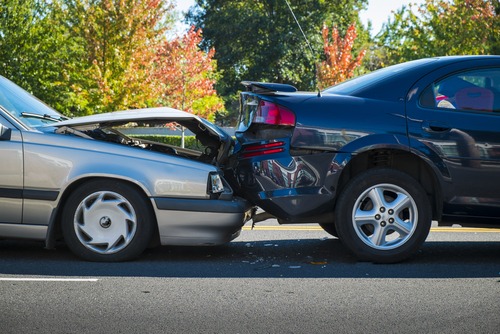Pharmacist Errors/ Medication Errors
Errors made by a pharmacist in a medication that a patient is prescribed can be held as a type of medical malpractice. Medical malpractice refers to a special kind of personal injury case that is brought against medical care professionals that applies when an individual is injured in the course of receiving some type of medical treatment or care. Those who suffer at the hands of a medical care provider could hold that same provider responsible and liable under specific rules. (1)
Medication Error Laws
Medication errors are unfortunately responsible for over a million fatalities or severe injuries in the U.S. each and every year! These types of errors are seen as preventable, even though they still occur due to malpractice in various forms. They occur in nursing homes, outpatient facilities, hospitals, clinics, and surgical centers. For prevention, an important term known as medication reconciliation should be known and learned. This is an important policy for dealing with the increased risks present during transition periods of medical care (like admissions, transfers within and discharges from these institutions). Medication reconciliation dictates a thorough comparison of patient medication orders to avoid dosing errors, drug interactions, duplications, and more.
Medication errors can occur at any point during the process of selecting, prescribing, and dispensing medications in the general process of patients receiving their medication. It can really refer to anything from administration of the wrong drug, to prescribing the incorrect dose of a drug, even to bad interactions with other drugs that shouldn’t have been prescribed together in the first place. The most common errors will typically prove to be made by nurses or doctors when administering medication in various settings; however, mistakes still happen with pharmacy error being a contribution. (2)
Liability as it Applies to Prescription Errors
Errors made with prescriptions can typically lead to lawsuits. Many prescription drug errors will go unreported or unnoticed by patients, and in other cases the error will be caught in time before anything severe can come of it. There is an obvious potential for extreme danger when it comes to prescription drug errors by health care professionals in charge. A number of various errors can occur during the prescribing of medication or during the filing of a prescription at the pharmacy, which can include the following:
- Prescribing the wrong medication
- Prescribing the wrong dosage of the right medication
- Failing to reasonably foresee dangerous complications (like harmful drug interactions)
- Failure to warn a patient of the dangerous side effects of a drug
- Marketing defective or unreasonably unsafe medications
So, who is to be held liable when these things occur? When a patient becomes harmed as the result of a prescription error, a medical malpractice claim can certainly come into existence. Many different people may be held liable, however. This could include the doctor, who prescribed the wrong medication or failed to warn the patient of the dangerous side effects of the drug. It could fall on the pharmacist, who filled the wrong prescription for reasons like it was just the overall wrong medication, or it was the wrong dosage. It could even very well fall on the prescription drug companies, manufacturers, or marketers who supply and endorse unreasonably dangerous drugs.
The difficult part is, obviously, taking complex medical evidence and proving that a medication error was the cause of the injury and not some other factor. Support may be needed from various sources, such as teams of medical experts. Experienced medical malpractice lawyers are a great option for you during this time if you want to be compensated for your injuries. (3)
Steps and Precautions Being Taken
In 2009, pharmacy medication errors were brought up in question on whether or not they should be ruled criminal acts. In May 2009, an Ohio pharmacist pleaded “No contest” to a charge of involuntary manslaughter with up to five years in prison and a fine of up to $10,000. The pharmacist in the case made what could have been deemed a simple mistake by some, when under his supervision, he made an accident that resulted in the death of a two-year-old girl. When it comes to these specific court cases, they see negligence written all over it and want to do nothing but hold these people liable for the mistakes made. In Ohio courts, it is explained as the following: “For one to be criminally negligent, he must be guilty of a substantial departure from due care, whereas ordinary negligence merely requires a failure to exercise due care.” In many cases, a pharmacist will not be charged with a crime for a medication error.
So how can a pharmacist take steps to evade a risk that his conduct may cause a certain and undesirable result? Every time a prescription order is filled, there is a chance that a mistake could be made. Any selection of the wrong drug or the wrong strength could be a substantial slip. The only way to actually evade a risk is to completely refuse to fill the prescription or drug order, which is impossible. Mistakes happen every day, but negligence can be held over those who make these mistakes. The reason why special precautions need to be taken can simply be answered by looking at the numbers. For instance, medical errors are among the leading causes of death in the United States, as it is estimated each year that 40,000 to 98,000 patients will die in hospitals from preventable adverse events. Routinely punishing people who have made these mistakes may make it more likely that the system may become fixed someday. (4)
Many steps are being taken to this day to reduce medical errors. For instance, in 2000, the U.S. Department of Health and Human Services (HHS) and other federal agencies worked together to form the Quality Interagency Coordination Task Force and issue an action plan for reducing medical error. The FDA also took steps by enhancing their efforts to reduce medication errors, by dedicating more resources to drug safety. This included forming a new division on medication errors at the agency in 2002. (5)
Things can be very difficult in a medical malpractice case that revolves around pharmacist and medication errors. However, you are not completely at a loss. It is a wonderful idea to work with an attorney who knows the medical malpractice laws and can aid you in your case. At MDL, we can give you the support your need, for your case is never too small or too difficult for us to handle! We are willing to review your medical records and testify on your behalf about the damage that was caused because of a prescription mistake. Call today for a free consultation.
(2) http://www.hg.org/medication-errors-law.html
(3) http://www.alllaw.com/articles/nolo/medical-malpractice/pharmacy-liability-prescription-errors.html
(4) http://drugtopics.modernmedicine.com/drug-topics/news/modernmedicine/modern-medicine-now/pharmacy-medication-errors-may-be-ruled-criminal?page=full
(5) http://www.fda.gov/Drugs/ResourcesForYou/Consumers/ucm143553.htm


















